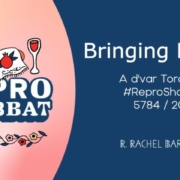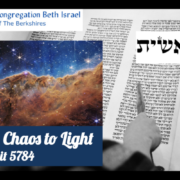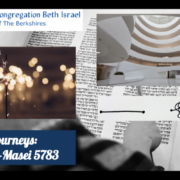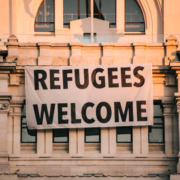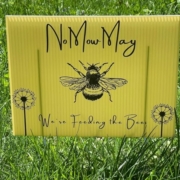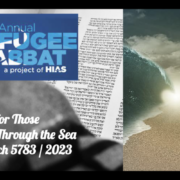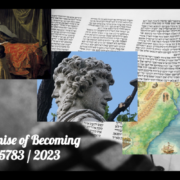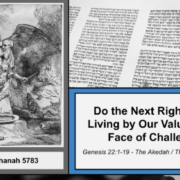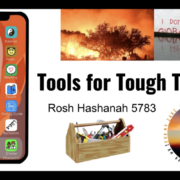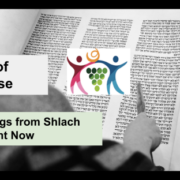“…All week as I’ve been working on this d’var Torah, I’ve been struggling with the sense that nothing I’m saying here is new. We all know that the fall of Roe has had precipitous and terrible impacts. But it feels important to name these realities, again, and to remind ourselves that we have an opportunity and an obligation to try to help fix what has been broken…”
“…The primordial light shines in the darkness not of space but of spirit. And when God declares it good, God is saying that there is capacity for good in this world. God is saying that we can choose to create, not just to destroy…”
“…Torah’s list of stops along our journey is a metaphor for the journey of an individual soul. The forty-two stops evoke the twists and turns of every human life: leaving Mitzrayim / places of constriction, seeking sustenance and purpose and our hopes fulfilled. And for us as for our ancient ancestors, the trajectory of the journey probably won’t be linear…”
“…A northern Berkshire host team of volunteers has come together to support a young family fleeing from Haiti, a married couple with two young children under the age of three…”
“…Wise and compassionate stewardship of our land has been a Jewish value ever since the Garden of Eden. In this era of climate crisis, it’s important to care not only for our grounds, but also for the local ecosystem of which we are a part.
Here at CBI we’re doing a few different things to live out this Jewish value…”
“..Our ancient spiritual ancestors couldn’t sing the Song until they felt emunah in their bones. And they couldn’t feel emunah in their bones until they stepped into the sea. Which means they had to step into the sea before they felt ready. They had to take the plunge without knowing for sure what lay ahead and whether or not the water would part. On a smaller scale, we all have moments like that, on the cusp of change: marriage or divorce, birth or death, choosing a new beginning. There’s a moment when we have to decide to just – step into the sea, ready or not….”
This guest post is the D’var Torah that CBI member Ziva Larson offered at Rosh Hashanah 2 Morning Services on Tuesday, September 27, 2022.

